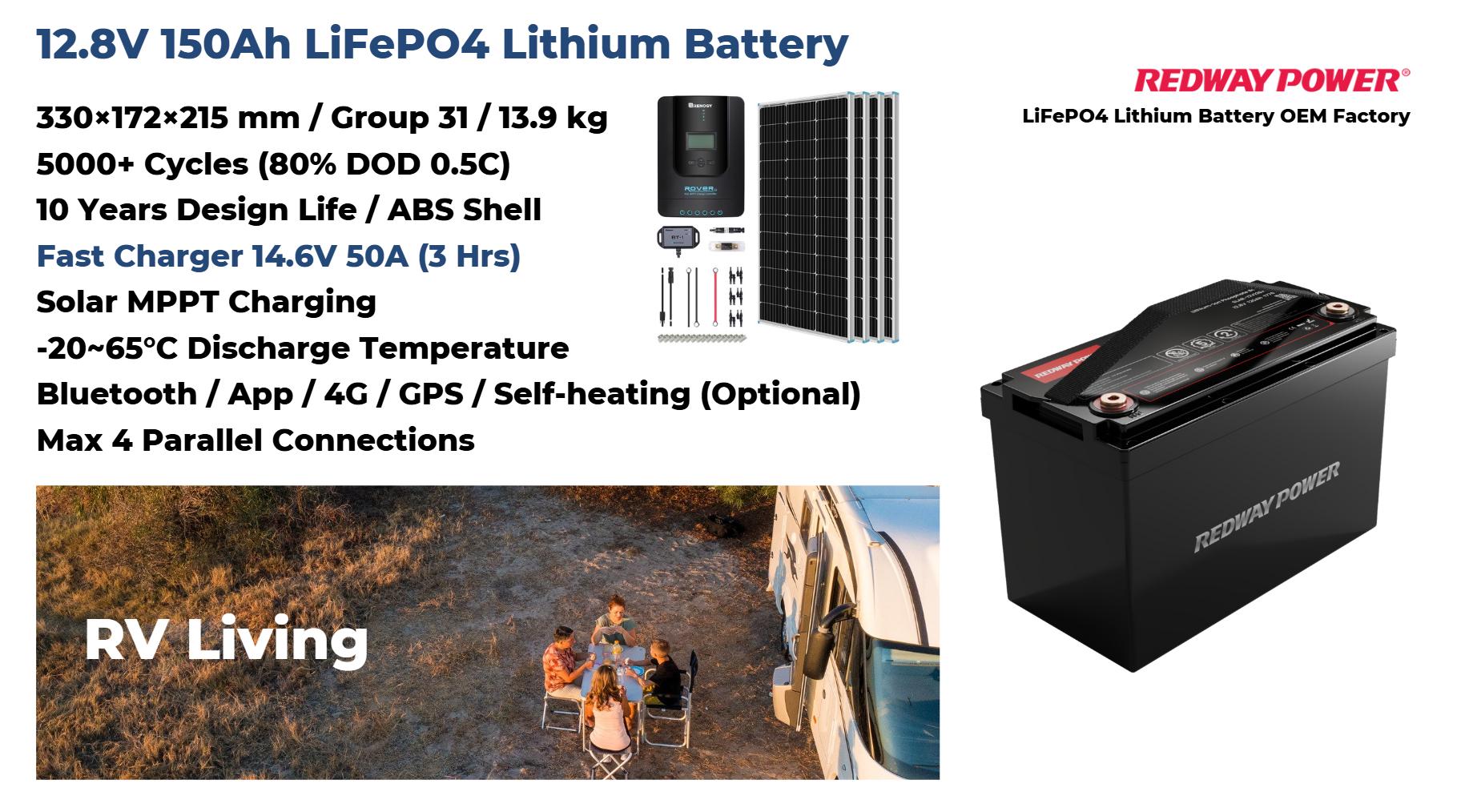Inverter efficiency and battery health are critical factors that directly impact the runtime of any system relying on battery power. A highly efficient inverter maximizes energy conversion from the battery, while a healthy battery ensures optimal energy storage and discharge. Together, they determine how long your devices can operate before needing a recharge.
Latest News
- Rising Demand for Efficient Inverters: As renewable energy sources become more popular, there is an increasing demand for inverters that maximize energy efficiency, particularly in solar applications.
- Technological Advancements: Recent innovations in inverter technology are improving efficiency rates, allowing for better performance in various applications, including electric vehicles and home energy systems.
- Battery Management Systems (BMS): The integration of advanced BMS technology is enhancing battery health monitoring, leading to longer lifespans and improved runtime for battery-operated devices.
Redway Expert Comment
“At Redway Battery, we understand that both inverter efficiency and battery health are paramount for maximizing runtime in any application. Our LiFePO4 batteries are designed to work seamlessly with high-efficiency inverters, ensuring that users can enjoy extended operation times. We are committed to providing solutions that enhance performance and reliability.”
Understanding Inverter Efficiency
1. What is Inverter Efficiency?
Wholesale lithium golf cart batteries with 10-year life? Check here.
Inverter efficiency refers to the ratio of output power to input power, expressed as a percentage. A higher efficiency means more of the battery’s stored energy is converted into usable power for devices.
| Efficiency Rating | Description |
|---|---|
| 90% – 95% | High efficiency; minimal energy loss |
| 80% – 89% | Moderate efficiency; some energy loss |
| Below 80% | Low efficiency; significant energy loss |
2. Impact on Runtime
Want OEM lithium forklift batteries at wholesale prices? Check here.
The efficiency of an inverter significantly affects how long a system can run on a given amount of battery power. For instance, if you have a 100Ah battery and an inverter with 90% efficiency:
- Input Power: 100Ah x 12V = 1200Wh
- Usable Output Power: 1200Wh x 0.90 = 1080Wh
This means that only 1080Wh is usable for powering devices, which directly impacts how long those devices will operate.
| Inverter Efficiency | Usable Power (Wh) |
|---|---|
| 95% | 1140 |
| 90% | 1080 |
| 85% | 1020 |
Battery Health and Its Importance
1. Factors Affecting Battery Health
Battery health is influenced by several factors, including:
- Age: Older batteries tend to have reduced capacity.
- Temperature: Extreme temperatures can negatively affect performance.
- Charge Cycles: Frequent deep discharges can lead to faster degradation.
| Factor | Impact on Battery Health |
|---|---|
| Age | Reduced capacity over time |
| Temperature | Extreme heat or cold can damage cells |
| Charge Cycles | More cycles lead to wear and tear |
2. How Battery Health Affects Runtime
A healthy battery maintains its capacity longer, ensuring consistent power output. If a battery has degraded significantly, even with a high-efficiency inverter, the runtime will be adversely affected due to reduced available energy.
- A fully healthy 100Ah LiFePO4 battery can provide its rated capacity.
- A degraded battery might only provide 70Ah due to wear.
This reduction drastically affects how long devices can run before recharging is necessary.
| Battery Condition | Available Capacity (Ah) |
|---|---|
| Healthy | 100 |
| Moderately Degraded | 85 |
| Severely Degraded | 70 |
Relation to Redway Battery Products
Understanding the interplay between inverter efficiency and battery health is crucial for our focus on manufacturing high-quality LiFePO4 Batteries. These batteries are designed for optimal performance with efficient inverters, ensuring users experience extended runtimes in various applications.
Recommended Product from Redway Battery
For clients or importers seeking reliable energy solutions, we recommend our LiFePO4 Portable Power Station. This product is engineered to work seamlessly with high-efficiency inverters, providing exceptional runtime and performance across multiple applications.
Top Competitors in Lithium Battery Market
Here are five alternatives to consider when looking for lithium batteries suitable for various applications:
| Brand | Product Name | Battery Type | Capacity (Ah) |
|---|---|---|---|
| Redway Battery | LiFePO4 Portable Power Station | Lithium LiFePO4 | Customizable |
| Renogy | 12V 100Ah Lithium Iron Phosphate | Lithium LiFePO4 | 100 Ah |
| Battle Born Batteries | 100Ah LiFePO4 Battery | Lithium LiFePO4 | 100 Ah |
| Victron Energy | Smart Lithium Battery | Lithium LiFePO4 | Various Options |
| AIMS Power | Lithium Battery Pack | Lithium LiFePO4 | Customizable |
FAQs
Why is a 200AH battery suitable for emergency power supply with a 900VA inverter?
A 200AH battery is suitable for a 900VA inverter as it provides ample energy storage to support devices during power outages. Its capacity allows for reliable power delivery while maintaining efficient operation, ensuring essential appliances can run without interruption.
What is the estimated backup time for a 200AH battery with a 900VA inverter?
The estimated backup time for a 200AH battery with a 900VA inverter is approximately 2 to 3 hours, depending on the actual power consumption of connected devices. For example, at 900 watts, a fully charged 200AH battery can provide power for about 2.2 hours, assuming 12V operation.
How to calculate power consumption for a 12V 900VA inverter and 200AH battery system?
To calculate power consumption, use the formula: Power (W) = Voltage (V) × Current (A). For a 900VA inverter at 12V, the maximum current draw is 75A (900W/12V). To estimate total energy usage, multiply the current by the number of hours the system operates.
Why is proper ventilation important for inverter installation?
Proper ventilation is crucial for inverter installation to prevent overheating and ensure efficient operation. Adequate airflow helps dissipate heat generated during use, reducing the risk of damage, improving longevity, and maintaining safety by minimizing fire hazards.






